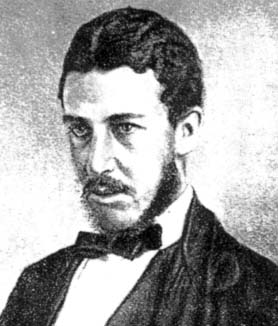Источник: The Theory of Political Economy (1871), Chapter III, Theory of Utility, p. 82.
Уильям Стенли Джевонс: Цитаты на английском языке
Источник: The Theory of Political Economy (1871), Chapter V, Theory of Labour, p. 172.
“It is clear that economics, if it is to be a science at all, must be a mathematical science.”
Источник: The Theory of Political Economy (1871), Chapter I, Introduction, p. 38.
Источник: The Theory of Political Economy (1871), Chapter V, Theory of Labour, p. 173.
Reflections on his earlier life, written when he was 27 (December 1862), published in Letters and Journal of W. Stanley Jevons (1886), edited by Harriet A. Jevons, his wife, p. 12.
Источник: The Theory of Political Economy (1871), Chapter VII, Theory of Capital, p. 190.
Preface To The Second Edition, p. 29.
The Theory of Political Economy (1871)
Источник: The Theory of Political Economy (1871), Chapter III, Theory of Utility, p. 61.
Источник: The Theory of Political Economy (1871), Chapter VII, Theory of Capital, p. 191.
Источник: The Theory of Political Economy (1871), Chapter VII, Theory of Capital, p. 185.
Источник: The Theory of Political Economy (1871), Chapter V, Theory of Labour, p. 176.
Источник: The Theory of Political Economy (1871), Chapter VII, Theory of Capital, p. 209.
“but, in reality, there is no such thing as an exact science.”
Источник: The Theory of Political Economy (1871), Chapter I, Introduction, p. 40.
Источник: The Theory of Political Economy (1871), Chapter VII, Theory of Capital, p. 188.
Preface
The Substitution of Similars, The True Principles of Reasoning (1869)
Источник: The Theory of Political Economy (1871), Chapter VII, Theory of Capital, p. 198.
Источник: The Theory of Political Economy (1871), Chapter III, Theory of Utility, p. 61.
Источник: The Theory of Political Economy (1871), Chapter IV, Theory of Exchange, p. 97.
Источник: The Principles of Science: A Treatise on Logic and Scientific Method (1874) Vol. 1, p. 169
Источник: The Theory of Political Economy (1871), Chapter I, Introduction, p. 37.
Источник: The Theory of Political Economy (1871), Chapter VIII, Concluding Remarks, p. 215.
Preface To The First Edition, p. 4.
The Theory of Political Economy (1871)
Источник: The Theory of Political Economy (1871), Chapter IV, Theory of Exchange, p. 110.
Источник: The Principles of Science: A Treatise on Logic and Scientific Method (1874) Vol. 1, p. 136
"The Railways and the State." https://archive.org/stream/essaysaddresses00oweniala#page/467/mode/2up In Essays and Addresses, Macmillan & Co., 1874, page 467.
Источник: The Theory of Political Economy (1871), Chapter III, Theory of Utility, p. 78.
Источник: The Theory of Political Economy (1871), Chapter VIII : Concluding Remarks, The Noxious Influence of Authority, p. 221.
